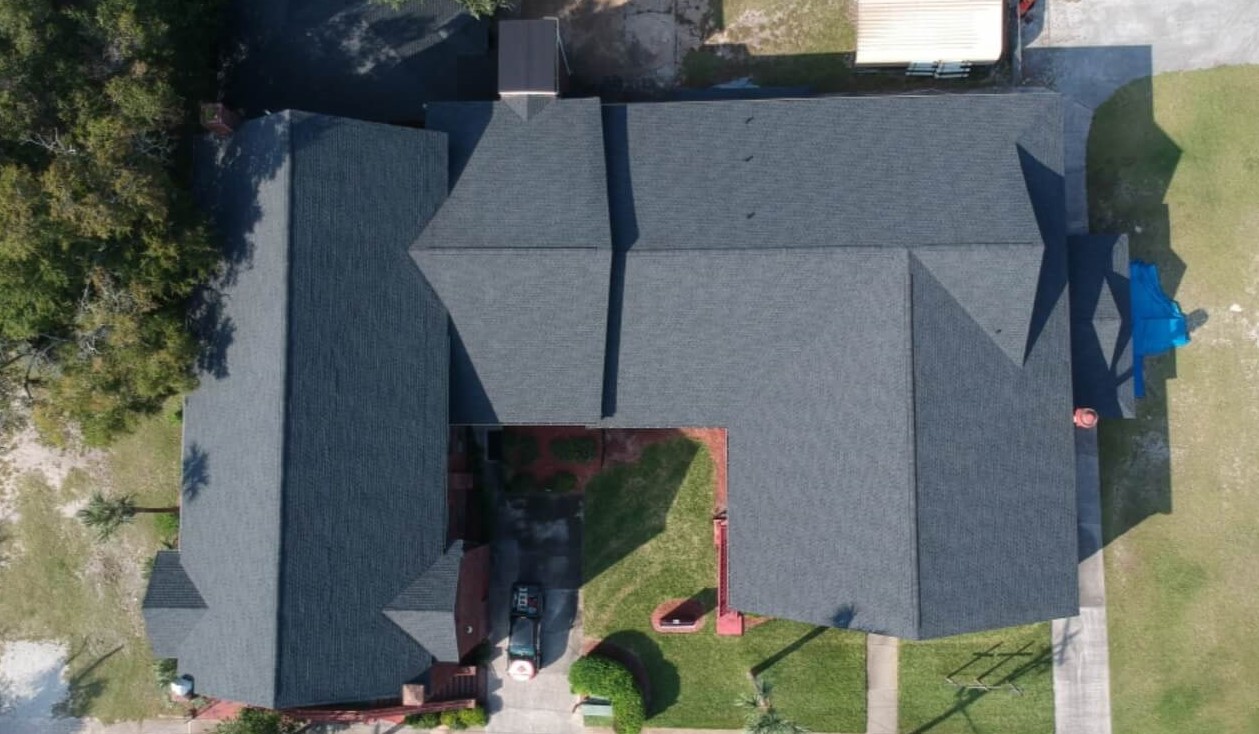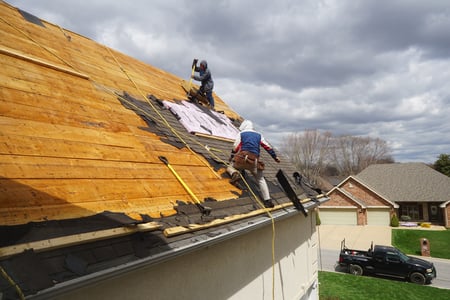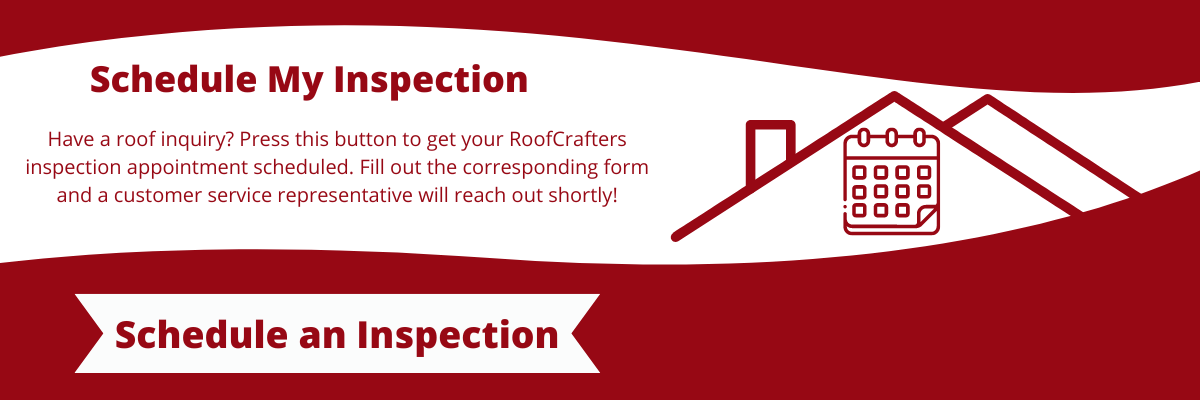Will Getting a New Roof in Florida Lower My Homeowner's Insurance Premium?
October , 2023 | 6 min. read

In the Sunshine State, where the beauty of coastal living comes hand in hand with the ever-present risk of severe weather, homeowners face a unique set of challenges. From tropical storms to hurricanes and everything in between, the integrity of your home's roof is paramount.
That being said, RoofCrafters can tell you that the benefits of a new roof extend far beyond protection and property value. It turns out that in Florida, and in many other regions, investing in a roof replacement can also significantly impact your homeowner's insurance premium.
So, if you’re interested in learning more about how getting a new roof in Florida could potentially lower your homeowner’s insurance premium among other benefits, you’re in the right place. In just a few short moments, you’ll learn what exactly a homeowner’s insurance premium is, if getting a new roof can help to lower it, and how that’s possible. Let’s get started!
What Is a Homeowner’s Insurance Premium?

A homeowner's insurance premium is the amount of money you pay to an insurance company in exchange for coverage that protects your home and its contents from various risks and perils. This regular payment, typically made on a monthly or annual basis, ensures that your insurance policy remains active, allowing you to file a claim and receive financial compensation if your home is damaged or your belongings are lost or stolen due to covered events. The cost of the premium is determined by factors like the value of your home, its location, the coverage options you select, and your insurance company's policies.
Will Getting a New Roof in Florida Lower My Homeowner's Insurance Premium?

Getting a new roof in Florida can potentially lower your homeowner's insurance premium. A new roof is often seen as a protective measure that reduces the risk of damage from weather-related events, such as hurricanes, storms, or hail.
Insurance companies may offer discounts or reduced premiums for homes with newer, more durable roofs because they are less likely to incur damage and result in insurance claims. However, the extent of the premium reduction can vary depending on your insurance provider, the type of roof you install, and other factors, so it's advisable to check with your insurance company for specific details and potential savings.
How Do Roof Replacements Lower Homeowner's Insurance Premiums?

Roof replacements can lower homeowner's insurance premiums for several reasons:
Increased Weather Resistance: New roofs are generally more weather-resistant and less susceptible to damage from wind, hail, and rain. Insurance companies offer lower premiums because they are less likely to have to pay out claims for weather-related damage.
Reduced Risk of Water Damage: A well-maintained roof is less likely to develop leaks, which can lead to water damage to your home's interior. Insurance companies see a lower risk of water damage claims with new roofs.
Improved Fire Resistance: Some roofing materials are more fire-resistant than others. Installing a fire-resistant roof can reduce the risk of damage from wildfires or accidental fires, potentially leading to premium discounts.
Enhanced Structural Integrity: New roofs are structurally sound and less likely to collapse or suffer extensive damage during severe weather events like hurricanes. This improved structural integrity can lead to lower insurance premiums.
Impact-Resistant Materials: Some roofing materials, like impact-resistant shingles, are designed to withstand hail and flying debris, which is common in severe storms. Using such materials can result in lower premiums.
Mitigation Credits: Insurance companies often offer wind mitigation credits for homes with specific roof features and upgrades, such as hurricane straps, reinforced sheathing, and impact-resistant roofing materials. These credits can significantly reduce premiums.
Energy Efficiency: Energy-efficient roofing materials, like cool roofs, can reduce the energy costs of cooling your home. While this doesn't directly affect your insurance premium, lower energy costs can free up funds for insurance payments.
Longevity: New roofs tend to last longer, so insurers are less likely to need to pay for damage-related claims within the first few years of a new roof's installation.
It's important to note that the extent of the premium reduction can vary depending on your insurance provider and the specific features of your new roof. If you're considering a roof replacement, it's a good idea to discuss the potential impact on your insurance premium with your insurance company. They can provide you with details about the discounts or credits they offer and what specific requirements need to be met to qualify for them.
How Else Can I Lower My Homeowner's Insurance Premium for My Roof in Florida?
There are several ways to potentially lower your homeowner's insurance premium in Florida:
Wind Mitigation Features: In hurricane-prone Florida, adding features like impact-resistant windows, reinforced garage doors, and a strong roof can result in discounts due to increased protection against wind damage.
Increase Deductibles: A higher deductible means you'll pay more out of pocket in the event of a claim, but it can lead to lower premium costs.
Maintain a Good Credit Score: Insurers often consider credit scores when setting premiums. A higher credit score can help you secure better rates.
Bundle Policies: Combining your homeowner's insurance with other policies, such as auto insurance, from the same provider can lead to multi-policy discounts.
Shop Around: Get quotes from multiple insurance companies to find the best rates and coverage options. Different insurers may offer different discounts.
Raise Liability Coverage: Increasing your liability coverage limits can be cost-effective, as it doesn't usually significantly impact your premium.
Stay Claim-Free: Avoid filing small claims that can increase your premiums. Save insurance for major losses.
Age of Home: Newer homes often have more modern construction and safety features, potentially leading to lower premiums.
Regular Maintenance: Keeping your home in good condition and promptly addressing issues can reduce the risk of damage and claims.
It's essential to discuss these options with your insurance provider to understand the specific discounts and savings that may apply to your situation. Keep in mind that insurance premiums can vary based on location, the type of coverage, and individual circumstances, so it's crucial to tailor your policy to your needs while seeking potential discounts.
How a New Roof Can Lower Your Home Insurance Costs in Florida
As you now know, a roof replacement can be a proactive and financially prudent decision for homeowners, particularly in regions prone to adverse weather conditions like Florida. Beyond the immediate benefits of enhanced protection and increased property value, the potential reduction in homeowner's insurance premiums adds another layer of incentive.
The durability, resistance to weather-related damage, and other protective features of a new roof make it a sound investment that not only secures your home but also secures savings in insurance costs over time.
To maximize these benefits, it's essential to communicate with your insurance provider to understand the specific discounts and criteria for qualification, ultimately creating a safer and more cost-effective living environment. If you’re interested in replacing your roof as a means to help lower your insurance premium, be sure to hit the “Schedule an Inspection” button down below, and one of our roofing experts will walk you through your options!
My name is Cassie, and I’m the Content Manager here at RoofCrafters. I was born and raised in Chicago, Illinois, and made my way out to Florida post-college graduation. I’m incredibly passionate about writing and creating valuable content that helps others with the collaboration of my marketing team. When I’m not working, I enjoy shopping (a little too much), spending time at the beach, and reading!



